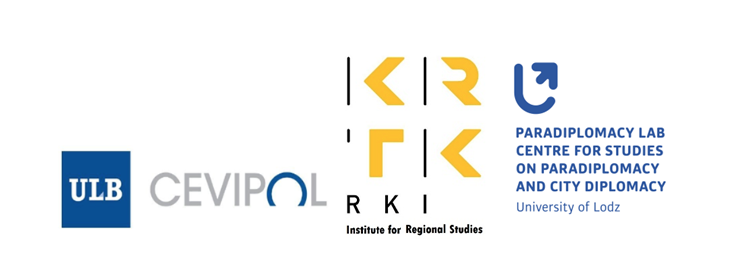- Faculté de Philosophie et Sciences sociales
- Accueil
- Agenda FAC
- Agenda SC PO
-
Partager cette page
Online Conference : Cities and regions bypassing central governments?
Publié le 30 juin 2025
– Mis à jour le 15 septembre 2025

Online conference
Date: 26 September 2025
Cities and regions bypassing central governments?
Cities, especially global hubs and national capitals, have long been at the forefront of political, social, cultural, and institutional innovation. In recent decades, their international ambitions have grown: they exchange policy models, build transnational alliances, promote democratic norms, and engage in climate diplomacy. These developments blur the conventional boundaries between domestic and international politics and challenge the assumption that foreign policy is the exclusive domain of nation-states.
A decade ago, Benjamin Barber’s provocative question “If mayors ruled the world?” reflected the rising visibility of cities in global governance. Today, we are witnessing the real-world implications of that thought experiment as subnational governments are not only complementing but increasingly bypassing national governments in pursuit of their international objectives.
Subnational diplomacy often aligns with the broader foreign policy goals of the state, particularly in areas such as trade, culture, or development cooperation. Yet tensions arise when subnational actors contest the values or strategies of the central government. In contexts where populist or authoritarian governments dominate national politics, cities and regional authorities governed by liberal democratic coalitions frequently position themselves as alternative and at times oppositional international partners.
One prominent example is the Pact of Free Cities, established by the mayors of Bratislava, Budapest, Prague, and Warsaw. In response to the democratic backsliding in their respective countries, these city leaders have presented themselves as reliable and progressive allies to the European Union. Their cooperation includes advocacy on the rule of law, climate policy, and support for Ukraine, as well as efforts to gain direct access to EU funds, arguing that national governments have obstructed these flows for political reasons.
Budapest’s municipal diplomacy further illustrates this dynamic. In contrast to the Hungarian government’s pro-Russian stance, the city has offered extensive support to Ukrainian refugees, including ethnic Hungarians from the Transcarpathian region. Mayor Gergely Karácsony’s visit to Kyiv and Bucha alongside the mayors of Warsaw, Prague, and Bratislava emphasized a shared urban foreign policy vision at odds with national priorities.
This pattern is not confined to Central Europe. In the United States, when President Trump withdrew from the Paris Climate Agreement, over 400 mayors, backed by networks like C40 and Climate Mayors, reaffirmed their commitment to the agreement's goals. Similarly, Istanbul’s mayor Ekrem İmamoğlu has challenged Turkey’s central government by seeking external funding and raising the city’s international profile, including speaking at the Munich Security Conference. His strategy has allowed Istanbul to position itself as both an international actor and a domestic alternative to Ankara’s illiberal policies.
In a related but distinct phenomenon, minority nations such as Catalonia, Flanders, Quebec, Scotland, and Wallonia have also built substantial international portfolios. Their foreign engagements are often framed as identity paradiplomacy - an effort to gain symbolic and material recognition for their nation-building projects within multinational states. These actors rarely defy their central governments overtly, but their sustained and structured international activity challenges conventional diplomatic hierarchies.
This online conference seeks to explore the evolving landscape of subnational diplomacy, with a particular focus on cases where local and regional actors bypass or strategically distance themselves from their central governments. We welcome both empirical case studies and comparative or theoretical contributions.
Program
Date(s)
Le 26 septembre 2025
